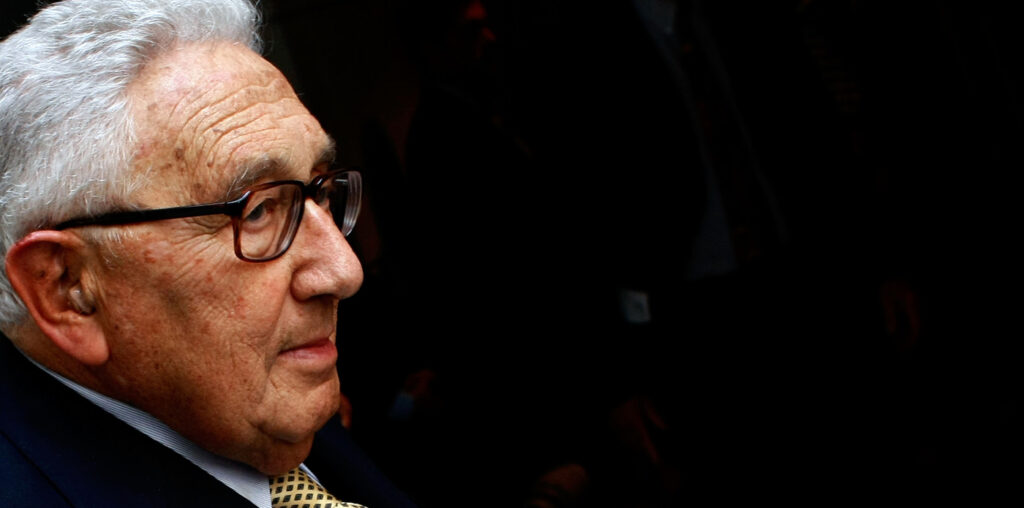

Depending on where you stand, Henry Kissinger is either a foreign policy mastermind or a war criminal. Some see him as a brilliant strategist who made tough but necessary decisions to advance American interests in a complex world; others point to his infamous order that American warplanes should “bomb anything that flies, on anything that moves” as evidence that he bears responsibility for the loss of countless civilian lives. But one thing both sides agree on is that few figures in the 20th century have had a more profound influence on how the U.S. conducts foreign policy.
Kissinger grew up in an orthodox Jewish household in Germany, under the shadow of the Nazis’ rise to power; he and his family fled to the U.S. when he was a teenager. Professor Jeremi Suri, author of “Henry Kissinger and the American Century,” argues that Kissinger’s experiences during the Holocaust have informed his approach to global politics throughout his career, as well as his relationship with democracy, war, and power. Today on the show, how Henry Kissinger shaped, and was shaped by, the 20th century.

